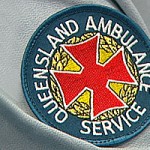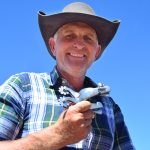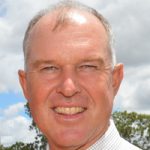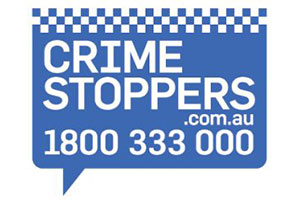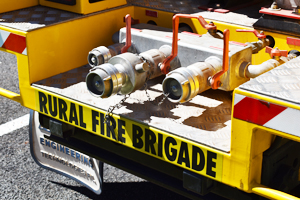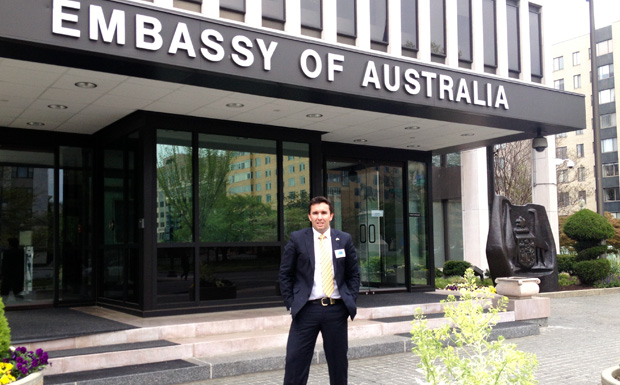
May 30, 2013
by Damien Tessmann
It’s not often that people really can say they have been on the trip of a lifetime, but I can.
In April I was privileged to be selected to represent The Nationals on the 29th Australian Political Exchange Council’s (APEC) delegation to the United States.
The US counterpart – the American Council of Young Political Leaders (ACYPL) – organised the itinerary to introduce future Australian political leaders to the enigma, in many ways, that is American politics.
ACYPL operates from grants given by the State Department (the equivalent to our Department of Foreign Affairs & Trade), various corporate donations (from Boeing and Starbucks and others) as well as other donations from near 40 years worth of alumni who have gone through their programs.
To highlight how serious the Australia-US relationship is, it was amazing to learn that the State Department requires that only four countries have annual bilateral visits with the US: Australia, Great Britain, Japan and China.
The fact that Australia is one of those four indicates just how highly the US views Australia and the need to start dialogue with the future leaders of both countries at the very start of those leader’s careers.
You cannot help but think other factors such as the Battle of the Coral Sea also contributed to this unique relationship being recognised in this way.
The delegation visited vastly different parts of the US and met with groups and businesses that no ordinary citizen or holiday maker would visit unless you were a senior Member of Parliament, and that is something I will always cherish.
Our delegation visited Washington DC, Atlanta and Savannah, Georgia along with Olympia and Seattle in Washington State, which made me feel at times like a ball in a pinball machine bouncing from one side of the country to the other.
Throughout each stop the delegation met with elected officials, business leaders and visited some of the largest revenue generating enterprises in the nation.
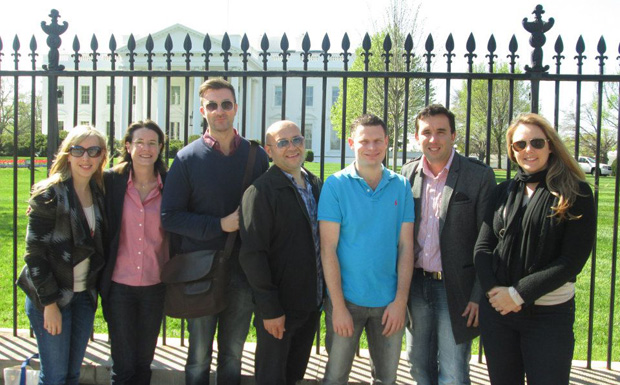
The delegation included:
- Liberal: Ms Kate Walshe – Chief Media Adviser to Denis Napthine, Premier of Victoria
- Liberal: Mr Matt Cross – Adviser to Barry O’Farrell, Premier of New South Wales
- Labor: Mr Memhet Tillem – Adviser to the Minister for Broadband, Senator Stephen Conroy
- Labor: Ms Kylie Turner – Adviser to Janine Freeman, State Member for Mirrabooka
- Greens: Mr Rob Simms – Former adviser to Senator Sarah Hanson-Young & PhD candidate at Flinders University (Adelaide)
- The Nationals: Cr Damien Tessmann – Councillor, South Burnett Regional Council
- APEC Executive Officer: Ms Suzy Domitrovic
Canberra
After a mammoth effort to arrange passports and visas I finally completed all that I needed to in order to travel on the delegation.
I arrived in Canberra for a full day of briefings on the relationship between Australia and the US and the economic situation of both nations.
The briefing session included
- Mr Jason Hyland, Deputy Chief of Mission, US Embassy Canberra.
- Representatives of the Department of Foreign Affairs & Trade.
- Prof Rob Hart, Senior Lecturer in US politics & history, Australian National University and,
- Murray Watt, the leader of last year’s delegation (a former Labor member of the Queensland Parliament).
But with that over, we boarded a plane and headed to Sydney ready to fly out to Los Angeles the next day.
Washington
After landing in Los Angeles at 6:30am we went through Customs and Immigration before making our way to a connecting flight to Washington DC, another gruelling flight from the west to the east coast.
Following an initial briefing by AYCPL’s Program Officer Elliot Bell-Krasner we were taken to the hotel and advised to be ready for our first evening in the US – bearing in mind that we had all just met 24 hours previously and would be spending the next 14 days travelling together as a group.
Because we all flew in on a Saturday afternoon there was a whole Sunday to use up. So we went to some of the most well-known monuments in the National Mall with an excellent tour guide.
Our first stop had to be The White House, but no tours were available given the sequester cuts that had just occurred (i.e. no US citizen or foreign delegation could visit the interior of the President’s House due to security reductions).
It was then on to the Jefferson monument, the Dr Martin Luther King Jnr monument, the President Franklin D. Roosevelt monument and the Lincoln memorial. This was indeed a day of massive amounts of walking!
It ended with a traditional American barbecue in Virginia (just outside Washington DC) where I was able to try macaroni and cheese for the first time.
The first full day of meetings included:
- American Council of Young Political Leaders CEO – Linda Rotunno
This meeting was designed to give an overview of the organisation that we were partnered with and an insight into the work that they had been doing in terms of fostering greater ties between countries since the 1960s.
ACYPL was started during the height of the Cold War and sent delegations of young Americans to the USSR and into Great Britain as a way of building dialogue. Since then it has grown into an organisation respected throughout the Capitol building, the US State Department and with many of the leading politicians across the country including notable figures such as Senator Harry Reid (Leader of the Democrats in the US Senate).
- US State Department with the Deputy Assistant Secretary of East Asian & Pacific Affairs
Visiting the headquarters of the foreign affairs department of the world’s largest democracy was something to behold. We were in the care of the Bureau of Educational & Cultural Affairs within the Department which has had 359 alumni since its inception who had gone on to lead their nations – a daunting figure for the six of us in 2013 representing Australia!
As mentioned, the State Department is the equivalent of our DFAT and is broken up into six large department under State Secretary John Kerry (and formerly Hillary Clinton) covering areas such as Economic Growth, Energy & Environment, Arms Control & International Security Affairs to name only a few.
Our delegation met with the Assistant Secretary of East Asian & Pacific Affairs which falls underneath the larger Under Secretary for Political Affairs.
This section of the department gave an inside look at the US relationship with the south-east Asian region, which is one in which the US hopes to continue to grow their presence and looks to Australia to help take the lead.
From my own point of view, I was interested to learn more about the relationship with Indonesia given its size and position, plus how Australia was viewed given the fallout from the live cattle export ban and the ever increasing issue of illegal boat arrivals.
- Australian Ambassador to the United States – Hon. Kim Beazley AO (The Australian Embassy).
This meeting ranks highly on my list, given discussing US politics and history with Ambassador Beazley was one of the most interesting and engaging discussions I have had in my life!
The Ambassador not only has the respect of countless Australians from his time as the leader of Australian Labor Party and Federal Opposition Leader, but his knowledge of the US political system, American history and vast contacts make him an ideal representative of Australia which was only outweighed by his personal warmth and charm.
We dined with Ambassador Beazley for two hours, discussing the hot-button issues of the day and gaining information from him not shared amongst the general public.
For that reason, I will not disclose further the discussions we all had with him but suffice to say I am sure there was other relevant information that he didn’t share with us.
To give you an idea of what it is like to be in the Australian Embassy, when we arrived on the top floor of the building we had our mobile phones taken from us due to the possibility of “bugs” being planted on them and were taken into a secure area for sensitive discussions.
I had the pleasure of gifting to Ambassador Beazley, on behalf of the delegation, a personalised Lady Flo Bjelke-Petersen cookbook with a message to the Ambassador from the great woman herself, given their time as members of the Australian Parliament. Without over-emphasising his reaction it would be safe to say that he was rendered almost speechless and paused for a moment as he cleared his throat and gave a hilarious story involving him, Lady Flo and former Federal National Party leader Ian Sinclair.
Following his gift, he insisted he find something of equal value to give to Lady Flo in return, and after rummaging around in a cabinet he came back with a “challenge coin” emblazoned with the Australian Coat of Arms.
Challenge coins were used by US soldiers to prove their membership of a particular wing of the military with the unwritten rule that if you failed to produce your coin when challenged you owed the individual a drink.
Whilst the delegation were all still getting to know each other, I became an instant hit as we were all given an Australian Embassy challenge coin which we would not have received had we not gifted the cookbook.
- Chair and Senior Fellow of The Brookings Institute – Mr Tom Mann
One of the more unique additions to the US political system which seems to be slowly growing in Australia is what is known as “think tanks”.
These bodies, separate from government, conduct research and education in the social sciences, primarily in economics, metropolitan policy, governance, foreign policy, and global economy and development, and provide their research to politicians on Capitol Hill.
The Brookings Institute is one of the oldest in Washington DC and would be considered a left-of-centre organisation.
Mr Tom Mann is a well-known figure in US politics, appearing regularly on political shows on national television and a co-author of bestselling books such as “It’s Even Worse Than It Looks: How the American Constitutional System Collided With the New Politics of Extremism”.
He is also a noted congressional scholar speaking widely on American politics and policy-making, including campaigns, elections, campaign finance reform and the effectiveness of Congress.
As one could imagine from a delegation made up of equal numbers from both the Right and the Left of Australian politics, there was vigorous discussion relating to foreign, economic and social policy both at home and in the US.
Mr Mann has been a regular visitor to Australia and will be visiting in Melbourne in just a few short weeks.
Whilst I personally disagreed with a reasonable amount of what Mr Mann had to say, I was fascinated by his intelligence and articulate views, and his perspective on where US politics was at this point in time.
- Coca-Cola’s Director of Public Affairs – Mr Rocky Rief
Coca-Cola is one of the largest companies in the USA, with its origins going back to a city we were due to visit following our time in Washington DC.
With a stunning view from their Washington DC headquarters overlooking The White House, we met with the director of Coca-Cola’s Public Affairs division to discuss lobbying within the US political system and third party entities.
Whilst most of the discussion was “off the record”, I can confirm that companies as large as Coca-Cola operate in a very different way to what I expected.
- Tour of the United States Capitol Building
Tuesday, April 16, was a day I had been looking forward to for a long time. Touring around a building which had been one of the global icons of democracy and power with that unique dome and the Statue of Freedom was something that I think spurred a sense of almost childlike excitement for a delegation of life-long political tragics.
Heading up to The Hill, we were greeted by a congressional aide to Congressman Adrian Smith (whom we would meet the next day) for a tour throughout the old Senate and House of Representatives chambers with their countless statues of those who’ve shaped the nation since George Washington.
We stopped in the public gallery of the House of Representatives and watched where the debates of the People’s House had occurred for generations and where the President of the United States delivers his annual State of the Union address.
Whilst no amount of words will ever do justice to the history and impressive nature of this building, there is an awe-inspiring feeling that does come over you walking into the building that has been engine room of democracy in a country as large and as diverse as the United States of America.
- President & Founder, Winnings Connections – Mr John Jameson
The role of corporations lobbying politicians in one of the most powerful nations on earth was something that really did fascinate me.
The delegation met with an issue-based lobbying firm, Winning Connections, to discuss how lobbyists operate within the political structure.
The role of this organisation is to assist Democratic-leaning political candidates, people of influence or businesses to influence the thinking of constituents across the 435 Congressional districts and 100 Senate spots that make up both Houses of Congress.
Billing themselves as a more left-of-centre lobbying firm, they credit themselves in issues involving groups like EMILY’s List and Planned Parenthood on women’s issues, the dangers of the Keystone XL pipeline and the successful approval of a casino and live gaming in the state of Maryland.
Most recently they were involved in the re-election of President Obama and in the tight Senate races in Montana and Minnesota.
The main success behind Winning Connections is the use of the telephone and sophisticated elements of political science.
One of the main things I found personally interesting is the mainstream use of phoning a constituent to discuss a political issue “cold fish” and energising that constituent to a point that they are then put straight through to their local Congressman or Senator’s office to apply pressure regarding an issue.
The vast amount of research undertaken by this corporation and the use of telecommunication was very enlightening however it was interesting to note that in the US it is illegal for any political organisation to contact somebody on their mobile phone.
Given the continued decline of landline use it will be something to watch to see what moves are made to remove that law and how this lobbying group lobbies Congress to change that law.
- Google Inc Political Action Committee (PAC)
I think one of the things that surprised almost all of the delegates was the rising use of Political Action Committees (known as PACs) in the modern political system.
The delegation visited Google’s Washington DC headquarters to discuss fundraising and finance laws in US campaigns and the role and inner workings of Google’s PAC.
In Google’s case, their PAC raises money from its employees who contribute a part of their salary providing they are above a certain level within the company.
This PAC is then managed by a board of directors that makes donations to political organisations and candidates. This was something quite difficult to comprehend from an Australian perspective.
I do not think I could explain adequately the tight regulations that have been placed on fundraising and financing of elections following the introduction of the McCain-Feingold financing laws.
In saying that, however, the impact of the Citizens United constitutional law case in 2010 has thrown the financing arena of campaigning on its head.
The United States Supreme Court held by a majority of 5 to 4 that the First Amendment (freedom of speech) prohibited the government from restricting political independent expenditures by corporations, associations, or labour unions.
There is a lot of concern as to just what this will mean in the years to come for election outcomes.
- Republican National Committee (RNC) Deputy to the Chairman – Mr Wells Griffith
Many of you will be familiar with the two-party system of government in the US – the right-of-centre Republican Party (Liberal/National Party equivalent) and the left-of-centre Democratic Party (Labor Party equivalent).
The Republican challenger to President Obama was former Massachusetts Governor Mitt Romney and the delegation was taken through an in-depth dissection of the 2012 election results and openly discussed some of the reasons for the loss.
As you might be able to tell from some of our earlier meetings, we had met with a range of left-leaning organisations which had downplayed the Republicans as a political force in the US into the future.
As a conservative, I posed to Mr Griffith what the future of the Republicans might be given the loss of the White House in 2012 and the failure to capture a majority in the Senate.
His answer was very interesting.
He opined that following the re-election of President George W. Bush in 2004, Bush’s close political adviser Karl Rove declared that the US was a centre-right nation and that the Democrats needed to move closer to the right to stay in the game.
The 2008 election of Barrack Obama and the control of both the House and the Senate by the Democrats led one Democrat leader to declare the US was actually left-of-centre.
But the Republicans bounced back in the 2010 mid-term elections, gaining the majority in the House of Representatives and very close in the Senate.
The 2012 election was the sixth closest election in US history and when you take into consideration the 2000 election, the 1992 Presidential election when Clinton won with slightly more than 42 per cent of the vote and the narrow margin of John F. Kennedy in 1960.
2012 wasn’t a landslide, particularly given the Republicans still held control of the House.
The vital point from Mr Wells was that it seemed when one side of politics was declared dead, the other party rose from the so-called ashes to launch havoc to the majority party, and that Americans reject the notion of being either right or left.
- Political Director, Democratic Congressional Campaign Committee (DCCC) – Mr Ian Russell
Following the delegation’s meeting with the RNC we walked around the corner to see the Democrats. The great goal for the Democrats is to recapture control of the House of Representatives and to regain the Speakership.
Unlike the Australian Parliament’s controversy in 2012 where no Labor member would take on the Speakership, the Speaker of the US House is a very powerful and a sought-after position, and most definitely not independent from their party.
Throughout the discussion we talked about candidate recruitment and selection, along with the mammoth task of organising individual campaigns in all 435 House of Representatives seats and the 100 Senate positions (two from each of the 50 states).
Given that very few Congressional seats or Senate positions change hands, the real contest for incumbents is in the primaries (or as we would refer to it in Australia, party pre-selections). This is where the battle for the party’s nomination to contest is sought.
The Australian notion of party loyalty is not something recognised as strongly in the US and the difficulty of trying to manage campaigns on the ground locally – given the parochial nature of Congressional politics – is something I looked at in amazement.
- Meeting with Congressman Adrian Smith of Nebraska
Entering into the US Congress for the second time was again a moment of excitement. The delegation met with Republican Congressman Adrian Smith of Nebraska’s third congressional district, an electorate not all that much dissimilar to our own Federal seat of Maranoa, taking a huge section of that state’s rich agricultural region.
After a discussion about how Congress worked and the various domestic issues dominating the national political discussion, including the debate about having a debate on gun control, I settled in for a sharp discussion on the US Farm Bill currently before the House.
The significance of this Bill was that it was to set the level of farm subsidies for the next five years. However it had legislation attached to it dealing with food stamps.
Having been passed in the Democratic-controlled Senate, the Bill had now been held up for over six months in the Republican-controlled House of Representatives.
After giving a stirring defence of our own farmers who have operated without subsidies for decades and statements regarding the Australian “losers” of the Australia-US Free Trade Deal (our domestic pig industry), I was keen to know what this Congressman from a “hog raising” region of the US thought. He mentioned that no direct subsidies were given to the pig industry, as such, but farmers benefited from subsidised grain, something our intensive livestock farmers did not have access to. In the end, Congressman Smith said that the days of the US government subsidising its farmers were numbered. As the son of a dairy farmer I think the debate surrounding the 2012 US Farm Bill can give farmers in Australia some hope that the day where they are on the same level playing field as those in the USA is not too far away. We hope.
Atlanta, Georgia
- Atlanta City Councillor, Councilman Kwanza Hall
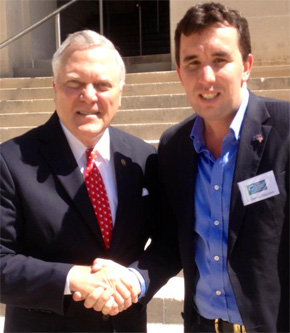
Whilst DC was interesting, I was very much looking forward to seeing the American South.
Arriving in Atlanta late in the afternoon, the delegation met with the Atlanta City Council early the next morning and was greeted by an up-and-coming young political leader Kwanza Hall.
We toured through the historic City Chambers and discussed many of the issues currently facing one of the largest cities in the South.
Coming from a very poor neighbourhood in the city’s CBD, Cr Hall had been instrumental in a program run by the city encouraging disadvantaged African-Americans to gain education and become contributing members of society.
The structure of the Council is very similar to our own here in the South Burnett, but as you will (or should that be, ya’ll) find as you read on not every Council is structured the same.
- Tour of the Georgia State Senate, State Senators Judson Hall & Jason Carter
Following our meeting at City Hall we crossed the street to head into the Georgia State House to look at the role of State Senators and the State House of Representatives.
Here we were privileged to meet State Senator Jason Carter, who is the grandson of former President of the United States Jimmy Carter, and the Republican Judson Hall.
Both Senators discussed the role of the Senate and surprised all of us by saying that both Houses meet for a maximum of four months every year.
The Houses come together from January through until April, meeting every week, then rise to come back the following year. Both Houses are part-time positions and almost all Members and Senators have jobs back home.
It was during our tour of the State House that we met the Governor of Georgia, Nathan Deal. This was a highlight for me, personally, as Governor Deal is a regular on political shows that I watch from the US.
- President Jimmy Carter Library & Dr Martin Luther King Jnr Center
Whilst in Atlanta we were able to visit the attractions surrounding two of Atlanta’s favourite sons – President Jimmy Carter and civil rights leader Dr Martin Luther King Jnr.
The Carter Library is an amazing tribute to an American President and icon of the South. Looking through the story of the peanut farmer from Plains who rose to become President was fascinating, particularly given we had met his grandson earlier in the day.
The Dr Martin Luther King Jnr Center was captivating! As someone who has studied American history and the civil rights struggles of the 1960s, to sit in the church where Dr King preached with his father, and to visit the house where he grew up in, was something I personally won’t forget.
Savannah, Georgia
- Mayor Pro Tem, City of Savannah, Councilman Van Johnson
There are some things in Local Government which I think are universal and a parochial love of your community is one of them.
Meeting with Mayor Pro Tem (or as we would refer to him, the Deputy Mayor) had to be the most entertaining meeting we had as he explained the structure of Local Government in his city and his love for his community.
Savannah is one of the oldest cities in the South and therefore has an ever-increasing issue regarding ageing infrastructure and the backlog of replacement. In addition to this problem of an aging city, there’s also the problem of maintenance of historic homes within the city.
The structure of the Council is much the same as we know here in the South Burnett but one thing that did surprise me greatly was the turnout of voters in Local Government.
In most years the turnout is somewhere between 15-20 per cent but in 2012 the turnout was near 50 per cent given it was a Presidential year.
- The Savannah College of Art & Design (SCAT) Tour
Savannah is certainly an amazing city and is known for its port, its relaxed atmosphere, the filming of a section of the movie Forrest Gump and without doubt the college of art and design.
Known the world over, this private university offers 42 majors across many areas including communication arts, building arts, fine arts, digital art and entertainment arts to name but a few.
Current tuition fees are $32.000 per annum but some 51 per cent of students receive scholarships based on their talents and 15,000 applications are received for only 2000 places.
The really interesting thing to know about the campus is that it is made up of old factory buildings that have been converted into the modern facilities that you see stretched across the campus.
- World Trade Center, Savannah
The final meeting the delegation had was with the World Trade Centre, Savannah, which is based next door to the Port of Savannah.
Here we discussed the economic drivers for the city:
- Tourism as a major industry with 420 miles of navigatable water and more than 60 golf courses
- More than 12 million visitors each year
- $3 billion entertainment industry
- Major distribution hub reaching 80 per cent of the US population in 24 hours
- Six major universities
- Quickstart Program – free training to any company within Georgia
- Over 200 major companies involved in manufacturing
- 13,000 military spouses
In addition to those economic factors, the Port of Savannah is the fastest growing port in the US, averaging 10.6 per cent growth per annum.
The port is of great military significance for the US but has major issues revolving around deepening the port to allow greater cargo and military ships in.
Seattle, Washington
- Port of Seattle CEO & Director of International Business – Mr Tay Yoshtitani & Mr Oshu Go
After leaving the beautiful State of Georgia, we were aboard a plane headed for Seattle. After arriving very late in the evening, we were ready for a tour of the Seattle Port first thing the next morning.
The Port of Seattle is America’s seventh largest port with just over two million containers making their way through the facility.
In addition to the port operations, the business also owns and operates the Seattle-Tacoma airport, which saw a massive 32.8 million passengers through its doors in 2011. Combined, the airport and port generate over 194,000 jobs in the State of Washington.
What makes this corporation unique is that it is owned by the voters of King County and the five commissioners that control the business are elected every four years and held accountable by the public.
- Discovery Institute Chief Executive Officer – Mr Steve Buri
As I mentioned earlier, think-tanks are a huge part of the political process in the US.
Whilst left leaning think-tanks such as the Brookings Institute are established, right of centre think-tanks are more organised and more prevalent than the left leaning.
This is due much in part to the fact that think-tanks were created as a way of combating the rise of universities as the centrepieces for the Left.
The Discovery Institute is such a right-leaning organisation which works directly on issue affecting the State of Washington and lobbying the politicians in Olympia.
The Institute has a special concern for the role that science and technology play in our culture and how they can advance free markets, illuminate public policy and support the theistic foundations of the West.
Most notably, the Institute is known for its work in lobbying on the issue of teaching intelligent design in public schools alongside the accepted scientific theories.
However further to this, the Institute also works on other issues of importance including public transportation and foreign affairs.
- Boeing Factory, Everett Facility
Chances are if you have travelled on a commercial airline internationally you may have flown on a Boeing aircraft built at this facility.
With almost 100 acres under roof, the creation of international aircraft such as the 747s, 767s, 777s and the new 787 Dreamliners is breathtaking given the speed at which they are made, yet amazing to know there is a 10-year waiting list.
But I really cannot add much more than that as the discussions we held with Boeing representatives were strictly “off the record”.
- King County Councillor Joe McDermott & Seattle City Council
The US is a diverse place in so many ways and its structure of Local Government is no exception; the structure of the Seattle City Council really is something quite different to what we are used to in Australia.
For example, the position of Mayor is essentially what we know a Mayor to be here yet he also runs the Council in the same way our CEO does here with staffing issues.
A Mayor does not preside over meetings of the Council nor would they attend meetings. The Council is chaired by a President and has a relationship with the Mayor much like a State Assembly does with the State Governor.
The Mayor has veto powers. however if a two-thirds vote of Councillors is achieved, the veto is overridden.
County Councils was something that I struggled to comprehend prior to arriving in the US – what were they? How did they differ from the conventional City Council?
In a nutshell, County Councils are the legislative body that takes in areas not covered by City Councils.
It was interesting to note that the name King County was given in memory of Dr Martin Luther King Jnr in the decades that followed his assassination.
Olympia, Washington
- Tour of and meetings at the Washington State Capitol Building
The final part of the delegation was spent looking through the State Capitol building in Olympia. Driving into a city that has a population of 46,000 people which is the capitol of a State of more than eight million people is something quite different.
Touring around the State Capitol and meeting with different legislative leaders from a system so different to our own was engaging to say the least.
Our delegation was able to meet with Representative Joel Kurtz, who led the minority State Republicans, along with State Senator Mark Schoesler, who was the leader of majority ruling Senate Republicans.
The State Senate was in a precarious position when we visited due to the fact that the Democrats, whilst technically having a slim majority, had two of their State Senators cross the floor and caucus with the Republicans.
State Senator Schoesler was an engaging person to speak to on the issue of farm subsidies, given that he owns a large wheat property in the eastern part of the state.
His view is very much that subsidies do have a shelf life and that sooner or later they will come to an end – remembering the US wheat industry are recipients of direct farm subsidies.
Following this, we met with the Secretary of State of Washington.
The Secretary of State at a state level controls everything to do with elections, given there is no independent electoral commission as we would know here in Australia. A fascinating discussion ensued about how elections are run under this system.
Whilst in Olympia we met with representatives of trade unions. The union movement is nowhere near as organised nor powerful in Washington State (or the US generally) as it is in Australia. I think both sides of this discussion learned a great deal from each other.
Finally, the delegation was treated to a tour of the Washington State Supreme Court by Justice Debra L. Stephens.
Sitting in a Supreme Court room is daunting enough but to be given the opportunity to sit behind the bench and then go into the room where the deliberations occur was something I don’t think any tourist has had the opportunity to do before.
The concept of electing judges for four-year terms was something very new to me and whilst I am not convinced that is the way to go, it was interesting to hear the arguments at least.
Conclusion
After a whirlwind two-week tour of the United States I have come back with a greater appreciation of many of the things we take for granted here in Australia, some views changed and some existing views hardened.
I think we should always retain our unique compulsory voting system.
When you see the extremes that US politics can get to trying to get out the vote rather than attract the ordinary voters’ attention, I think our system is much better.
Our democratic process of government can certainly hold its head up high when in comparison to our colleagues of nations across the world.
* * *
I am more than happy to attend any organisation in the South Burnett that would like to have me as a guest speaker to talk about this trip. I can be contacted on 0409-490-175 or by email.








